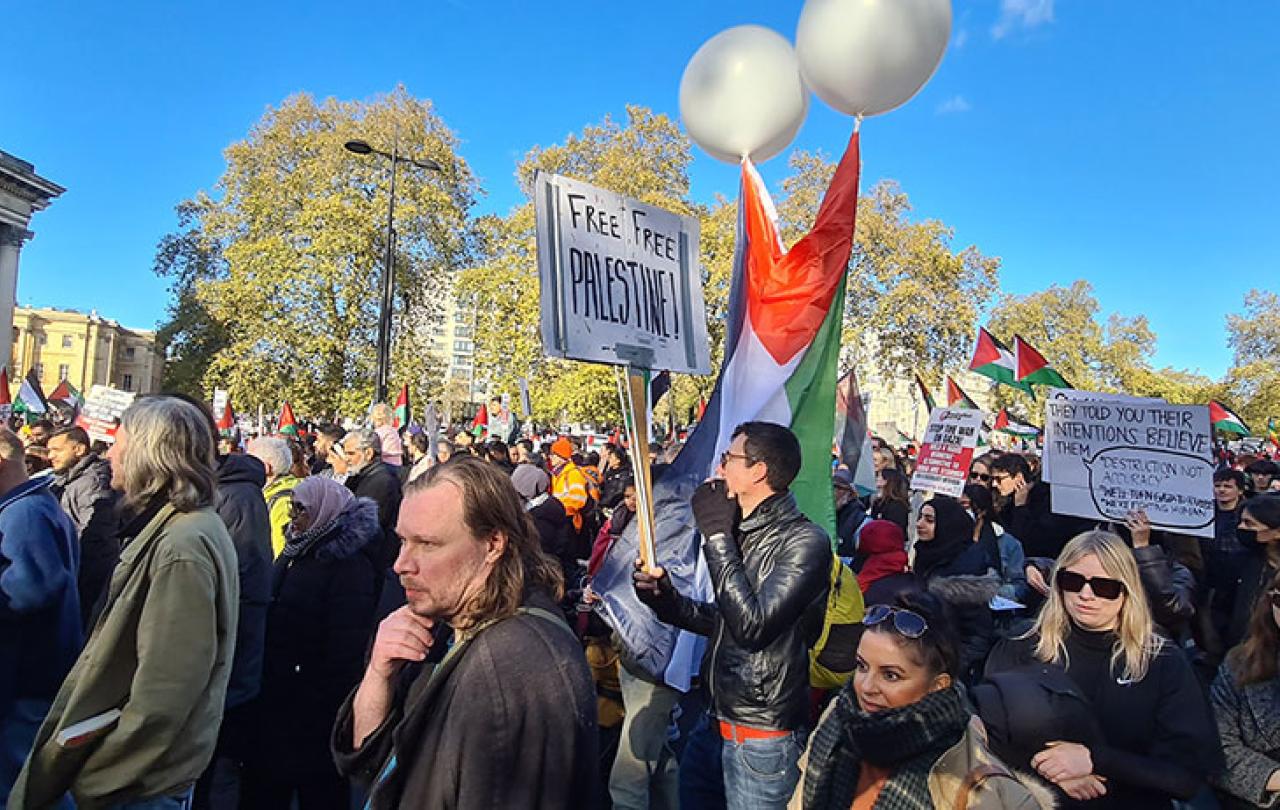
The decision by “Britain’s strictest school”, the Michaela Community School in north-west London, to ban religious observance after a Muslim majority among the children started prayer rituals, which led to some bullying and violence (and indeed a lawsuit), has met with almost universal media approval across the political spectrum.
Nick Timothy, a columnist on the Daily Telegraph and a former spin-doctor for Theresa May as prime minister, predictably used it as a dread warning against an Islamic threat under the headline: “Multiculturism is becoming a Trojan horse for Islamist domination.”
In what some might term as the sensible middle-ground of the Sunday Times, Camilla Long weighed in with an attack on Muslim cultural observance and then posed the extraordinarily illiberal question: “Wouldn’t it be better if we banished faith in schools altogether?” On the left, Polly Toynbee in the Guardian agreed, concluding that it’s “time to abolish religious schools.”
This seems to be the kind of old-school management that said that if you can’t play together nicely, there will be no playtime for anyone.
There’s something cultic about the free school Michaela and its headteacher, Katharine Birbalsingh. The right-wing love it for its Gradgrind strict disciplines and consequently high academic results. The left are said to hate it for much the same reasons. And almost universally Ms Birbalsingh is treated as an educational demi-god.
Allow me to demur. The first thing I want to say is something I think is blindingly obvious: You don’t teach children religious tolerance by being religiously intolerant. I don’t usually like to have to coin a truism, but there we are.
The desire to ban is an unfortunate tendency in Birbalsingh. I understand why she might want to ban knives or drugs or porn in her school, as would all schools, but religious observance? This seems to be the kind of old-school management that said that if you can’t play together nicely, there will be no playtime for anyone.
Transposed into the religious context, that becomes: “If you can’t pray together nicely, there will be no prayers.” This grows into an extreme form of secularism, which pretends that there is no religion in the world, when we know that in fact it’s full of religious people. That doesn’t seem to be a good education for our young, if good education is meant to prepare them for the world, which I posit that it does.
I’m with our late Queen Elizabeth on this and, in particular, the profound generosity of her Christian faith.
The next thing I want to say is that it’s incumbent on a decent school to teach that the three Abramic faiths – in order of their emergence, Judaism, Christianity and Islam – are in their authentic forms religions of peace.
Anyone who claims that Islam’s holy book, the Koran, is intrinsically violent clearly hasn’t read the the Bible or the Torah. But, in all three instances, human violence and oppression are met with the redemption of an all-loving God.
It follows that the Michaela can and should ban bullying and intimidation, but not the authentic cultural practices of these religions. It might, naturally, simply be easier to ban the lot and be done with it, but nobody has said that running a school is meant to be easy.
In my own experience as a parish priest, visiting a Church of England primary school (the sort that Toynbee, as a good liberal, would ban) for assemblies, is that tolerance and diversity are best taught naturally by practice.
At prayer time, I was gently reminded by the headteacher that I shouldn’t invite the children to pray with words such as “hands together” as that’s not how all families pray (if they pray at all). Better to say: “Let’s get ready to pray, however we do that.” Tolerance in action.
Finally, off the back of talking about a Christian school in a nominally Christian state, I’d like to conclude with how a Christian school (clearly not Birbalsingh’s) should behave. Clearly, evangelising in a multicultural institution is inappropriate. What we should aspire to is pluralism.
I’m with our late Queen Elizabeth on this and, in particular, the profound generosity of her Christian faith. She delivered a speech at Lambeth Palace to mark her Diamond Jubilee in 2012. She started by saying: “The concept of our established Church is occasionally misunderstood and, I believe, commonly under-appreciated. Its role is not to defend Anglicanism to the exclusion of other religions. Instead, the Church has a duty to protect the free practice of all faiths in this country.”
She went on to say: “Gently and assuredly, the Church of England has created an environment for other faith communities and indeed people of no faith to live freely.” It seems to me that this should be an aspiration that is taught in our schools. Not just the Christian ones, but all of them.
It invites children of other faiths and of no faith to respond accordingly. It seems to be at the heart of an education that teaches how the world actually is, rather than how we fantasise it to be.
And it provides a considerably more valuable lesson for children than the instinct of Ms Birbalsingh and her media cheerleaders to ban things.





